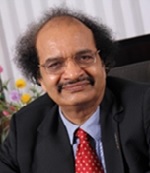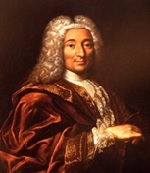


Padmashri Prof. G. D. Yadav
 Professor G.D. Yadav (born 14th September, 1952) is one of the topmost, highly prolific and accomplished engineering-scientists in India. He is internationally recognized by many prestigious and rare awards as an academician, researcher, and innovator, including his seminal contributions to education, research and innovation in Green Chemistry and Engineering, Catalysis, Chemical Engineering, Energy Engineering, Biotechnology, Nanotechnology, and Development of Clean and Green Technologies. For 10.5 years, he served as the Founding Vice Chancellor and R.T. Mody Distinguished Professor, and Tata Chemicals Darbari Seth Distinguished Professor of Leadership and Innovation at the Institute of Chemical Technology (ICT), Mumbai, which is a Deemed-to-be-University having Elite Status and Centre of Excellence given by State Assembly on par with IITs/IISc/IISERs. He currently holds the titles of Emeritus Professor of Eminence and J.C. Bose National Fellow in ICT. He serves as the Adjunct Professor at University of Saskatchewan, Canada, RMIT University, Melbourne, Australia and Conjoint Professor, University of New Castle, Australia. He was conferred Padma Shri, the fourth highest civilian honour, by the President of India in 2016 for his outstanding contributions to Science and Engineering. He has been recipient of two honorary doctorates: D. Sc. (Hon. Causa, DYPU, Kolhapur) and D. Eng. (Hon. Causa, NIT Agartala). As the Vice Chancellor he created many records and brought many honours and accolades to ICT.
Professor G.D. Yadav (born 14th September, 1952) is one of the topmost, highly prolific and accomplished engineering-scientists in India. He is internationally recognized by many prestigious and rare awards as an academician, researcher, and innovator, including his seminal contributions to education, research and innovation in Green Chemistry and Engineering, Catalysis, Chemical Engineering, Energy Engineering, Biotechnology, Nanotechnology, and Development of Clean and Green Technologies. For 10.5 years, he served as the Founding Vice Chancellor and R.T. Mody Distinguished Professor, and Tata Chemicals Darbari Seth Distinguished Professor of Leadership and Innovation at the Institute of Chemical Technology (ICT), Mumbai, which is a Deemed-to-be-University having Elite Status and Centre of Excellence given by State Assembly on par with IITs/IISc/IISERs. He currently holds the titles of Emeritus Professor of Eminence and J.C. Bose National Fellow in ICT. He serves as the Adjunct Professor at University of Saskatchewan, Canada, RMIT University, Melbourne, Australia and Conjoint Professor, University of New Castle, Australia. He was conferred Padma Shri, the fourth highest civilian honour, by the President of India in 2016 for his outstanding contributions to Science and Engineering. He has been recipient of two honorary doctorates: D. Sc. (Hon. Causa, DYPU, Kolhapur) and D. Eng. (Hon. Causa, NIT Agartala). As the Vice Chancellor he created many records and brought many honours and accolades to ICT.
In the recent November 2020 survey of Stanford University, where Indian scientists in top 2% of those in the World are honoured, Professor Yadav is number one in India in Physical Chemistry which is within 0.2% of the world scientists and is ranked at 66, which is remarkable. He is a chemical engineer, but his research is in the field of catalysis science and engineering which is counted as part of physical chemistry.
His research productivity is phenomenal with supervision of 101 Doctoral and 122 Masters Theses; which is the first record in ICT and for any Engineering Professor in India. Besides, he has supervised 37 post-doctoral fellows, several summer fellows and research staff. He has published 463 original research papers, 118 national and PCT patent applications (78 granted); 3 books; h-index of 60, i10 index of 285; 13,000+ citations in journals, patents, books and monographs. He is still actively involved in guiding doctoral students, patenting, publishing, consulting, and transferring technologies to industry. For several years, he has been associated with many important committees of the central and state government and with UGC, AICTE, DST, DBT, MHRD, CSIR, as well as CII, FICCI, ICC, etc.
He is also a member of Apex Council of Indian Oil R&D; Expert Advisory Committee, ONGC Energy Centre (OEC); Glexcon India Advisory Board on Process Safety and the Governing Council DBT-Indian Oil Energy Centre, and member of the DBT-Pan IIT Centre for Bioenergy. He is Chairman of DST's National Expert Advisory Committee on Innovation, Incubation and Technology Enterprise, member of Advisory and Screening Committee of the Common Research and Technology Development Hubs of DSIR, Chairman, PAC of International Programmes in Chemical Sciences and Engineering, DST and Chairman, Expert Committee, Waste Management Technology, DST. He is a member of the Maharashtra Govt's Expert Committee on NEP 2020.
He had the honour of addressing 3 Convocations of renowned universities. He is fond of literature, etymology, and Sanskrit. The ICT's University song is written by him. There are 53 video clips including documentaries on his life on YouTube. https://www.youtube.com/playlist?list=PLclyJH91-TwvTScCVrcih3nrrPGgf8U8R
Pierre Fauchard
 Pierre Fauchard (1678 - March 22, 1761) was a French physician, credited as being the "father of modern dentistry". He is widely known for writing the first complete scientific description of dentistry, Le Chirurgien Dentiste ("The Surgeon Dentist"), published in 1728.Le Chirurgien Dentiste swept away the old attitudes of secrecy introducing an era of openness and scientific evaluation. As a result of this work, France became recognized as the leading center for dental excellence.
Pierre Fauchard (1678 - March 22, 1761) was a French physician, credited as being the "father of modern dentistry". He is widely known for writing the first complete scientific description of dentistry, Le Chirurgien Dentiste ("The Surgeon Dentist"), published in 1728.Le Chirurgien Dentiste swept away the old attitudes of secrecy introducing an era of openness and scientific evaluation. As a result of this work, France became recognized as the leading center for dental excellence.
His ideas took root in North America and profoundly influenced the development of dentistry in that region. He introduced dental fillings as treatment for dental cavities, and he suggested combination of materials like lead, tin and sometimes gold. He also said that teeth should be cleaned periodically by a dentist. He said that braces should be used to correct the position of teeth, and that children's teeth could be moved more easily and quickly than adults', a result of the size of the teeth roots, according to Fauchard.
He was ahead of his time in medical practice and he described the way the patient should be greeted by the doctor and the position in which the patient should sit. He recommended that the dentist should stand behind the patient to help them relax, and he introduced the concept of dentist's chair light. Fauchard adopted a scientific approach to dental practice. He refuted the opinions of self-styled 'experts' and relied on his own observations of the success or otherwise of clinical techniques and became a harbinger of 'evidence-based dentistry'. In recognition and commemoration of his role, the Pierre Fauchard Academy was founded over 60 years ago. The Academy continues to promote the tradition of professionalism and altruism which he established. Fauchard was featured on a stamp in France to commemorate the 200th anniversary of his death in 1961.





